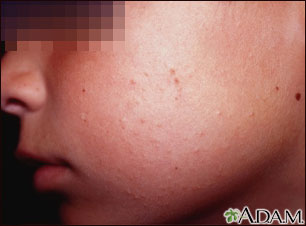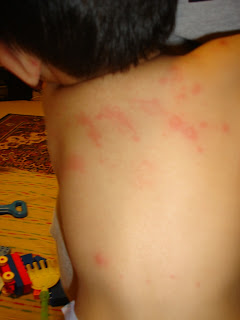When Food Allergy Treatments are Sensationalized, it is the Allergist's Role to Bring Us All Back Down to Earth
Sharing a recent post from my practice Facebook page, in response to concerns raised by the recent publication of a meta analysis on anaphylaxis rates during food allergen oral immunotherapy: https://www.thelancet.com/journals/lancet/article/PIIS0140-6736(19)30420-9/fulltext
I hope my comments are helpful at proving some context for patients currently pursuing or consider food allergen desensitization therapy.
I am a non-alarmist by nature, and feel it is 100% possible to integrate new data without falling prey to the sensationalization of these publications by the media. It is frustrating to read in the news one day, "Researchers find CURE for peanut allergies!" (WRONG!!!) and the next day read "Experimental treatment for food allergy causes more life-threatening reactions than avoidance!" (Hmmm...a bit misleading). No nuance, no thoughtfulness, no concern for the impact of such a black & white approach to a decidedly grey issue. And why would there be? Nuance doesn't get you clicks or ad revenue. A sexy headline does. When it comes to alarmist interpretations of science by the media, it is the role of those of us who truly understand these patients and these treatments to bring some rationality back to the discussion.
Don't rely on media articles to help you sort through these complicated issues - you will end up with over-simplified click-bait. Better to find a quiet corner and read the source article itself, and take it to a physician you trust to help you make sense of it all.
____________________________________________________________________
Receiving (very reasonable!) questions about the OIT Anaphylaxis meta-analysis published in the Lancet journal.
Quick response: Respected journal, rigorous analysis, tells us what we already knew to be true: the more you ingest a known food allergen, the more likely you are to experience a food allergy reaction.
I do not dispute the findings that a patient consuming their food allergen daily or twice daily during an oral immunotherapy protocol is more likely to experience anaphylaxis than someone successfully observing strict avoidance. I do think it would be important to compare data on episodes of anaphylaxis as a function of number of ingestions, and also to analyze data on rates of anaphylaxis resulting from accidental allergen ingestion in both groups (non-OIT vs. OIT). This is liable to yield a different perspective.
It is also notable that anaphylaxis from accidental exposure in an uncontrolled environment and anaphylaxis from a known and quantified ingestion in a controlled and monitored setting are quite different scenarios.
Nevertheless, as allergists committed to evidence-based medicine and with the best interests of our patients at heart, we must acknowledge that we can ALWAYS do better. Although most patients pursing food allergen desensitization have excellent results and improved quality of life, there is absolutely a subset of patients who truly struggle with dosing due to reactions and anxiety. As a specialty, we need to dive deeper into working to identify those patients most likely to experience a negative course before beginning oral desensitization therapy, so we can A) address pre-existing risk factors prior to the initiation or therapy, or B) direct the patient to defer OIT in favor of continued avoidance or an alternative therapy (EPIT, SLIT, etc.).
I also believe an important point to recognize is that avoidance of a reaction is not the only goal of a food allergen desensitization program. For many patients, the benefit gained is reduced dietary restrictions, expanded opportunities for activities, and an increased sense of control.
We are committed to supporting our patients with a transparent discussion of ALL options for the management of life-threatening food allergies, including the option to continue avoidance, and to continually refine our approach to management to optimize safety and quality of life.
For those patient currently pursuing OIT, this study likely won't change anything for you - your past experience is more reflective of your future experience than a study. For those patients on the fence - good for you for reading and educating yourselves on this important decision. We are here to support you with information and non-judgemental guidance, every step of the way.



Comments
Post a Comment
Thanks for taking the time to comment on this blog's posts! Let's keep the discussion engaging and free of frivolous advertising or vulgarity. It's a family show, folks!